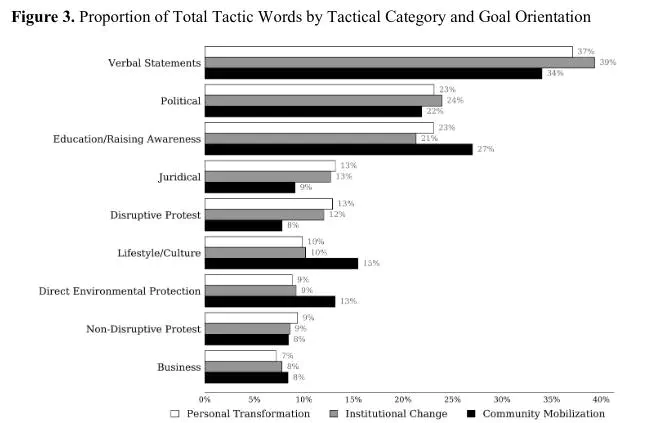The Meaning of Action: Linking Goal Orientations, Tactics, and Strategies in the Environmental Movement
In Mobilization: An International Quarterly

Abstract
Social movement scholars cite the importance of strategy as a critical component of collective action. But what is a movement strategy, and what role does it play in facilitating movement processes? We conceptualize strategy as both the reason for engaging in collective action as well as the tools used in the course of action. More than a rational means-ends calculation, strategy is inherently a meaning-making process, providing the movement and its participants a sense of purpose. Using the U.S. environmental movement as a case study, and employing a data-driven and inductive strategy that combines both computational and qualitative methods, we find that strategy emerges as organizations link their actions to their goal orientation: what level of society the organization views as the locus of change. We conclude by illustrating changes over time in attention to different movement strategies, highlighting strategic differences between organizations working together in the same social movement.